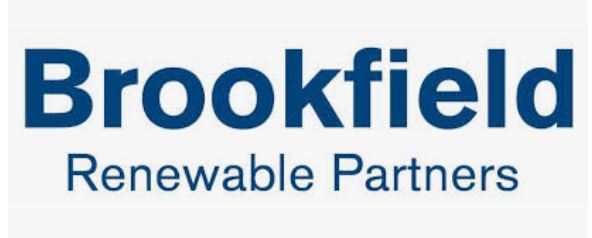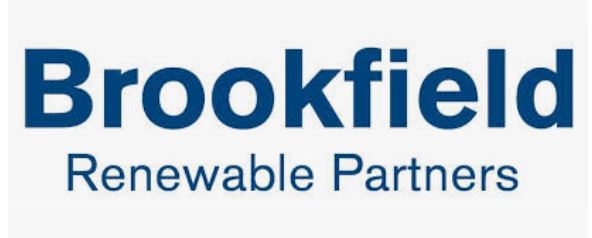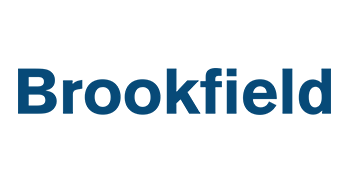Brookfield Renewable Partners L.P. (NYSE:BEP) Faces Financial Challenges Despite Strong Sector Demand

- BEP reported an earnings per share (EPS) of -$0.35, missing the estimated EPS of -$0.26, indicating financial challenges.
- The company generated revenue of $907 million, falling short of the estimated $1.7 billion, yet reported record performance from its global operating fleet.
- Financial metrics reveal a negative price-to-earnings (P/E) ratio of -30.37 and a current ratio of 0.61, highlighting potential liquidity challenges.
Brookfield Renewable Partners L.P. (NYSE:BEP) is a leading global renewable energy company. It operates a diverse portfolio of renewable power assets, including hydroelectric, wind, solar, and storage facilities. The company is known for its extensive, highly contracted global operating fleet, which is nearing 45,000 megawatts. BEP competes with other renewable energy firms like NextEra Energy and Enel Green Power.
On May 2, 2025, BEP reported an earnings per share (EPS) of -$0.35, missing the estimated EPS of -$0.26. Despite this, the company announced strong financial results for the first quarter of 2025, ending March 31. CEO Connor Teskey highlighted the successful advancement of growth initiatives, including the acquisition of National Grid Renewables and the completion of the privatization of Neoen.
BEP generated revenue of $907 million, falling short of the estimated $1.7 billion. However, the company reported record performance from its global operating fleet, which is diversified across cost-effective energy technologies. The fundamentals for energy remain robust, driven by increased investment in digitalization and reindustrialization, fueling demand growth that surpasses supply.
The company's financial metrics reflect its current challenges. BEP has a negative price-to-earnings (P/E) ratio of -30.37, indicating negative earnings over the trailing twelve months. The price-to-sales ratio is about 1.14, suggesting investors are paying $1.14 for every dollar of sales. The enterprise value to sales ratio is approximately 6.77, while the enterprise value to operating cash flow ratio is around 30.90.
BEP's earnings yield is negative at -3.29%, reflecting its current financial performance. Additionally, the current ratio is 0.61, indicating potential liquidity challenges in meeting short-term obligations. Despite these challenges, the demand-supply imbalance in the energy sector continues, driven by global market uncertainties related to tariffs, as highlighted by CEO Connor Teskey.
| Symbol | Price | %chg |
|---|---|---|
| BREN.JK | 9775 | 2.3 |
| PGEO.JK | 1335 | 0.37 |
| ARKO.JK | 1520 | 0 |
| 9503.T | 2272 | 2 |

Brookfield Renewable Partners L.P. (NYSE:BEP) Invests in Isagen to Boost Hydroelectric Portfolio
- Brookfield Renewable Partners L.P. (NYSE:BEP) is set to invest up to $1 billion to increase its stake in Isagen S.A. E.S.P., aiming to enhance its hydroelectric portfolio.
- The investment is expected to increase BEP's funds from operations (FFO) per unit by 2% in 2026, demonstrating the financial benefits of this strategic move.
- Raymond James has reiterated a "Strong Buy" rating for BEP, with a price target of $33, indicating a potential upside of about 21.41%.
Brookfield Renewable Partners L.P. (NYSE:BEP) is a leading player in the renewable energy sector, known for its extensive portfolio of hydroelectric, wind, solar, and storage facilities. As part of Brookfield Asset Management, which manages over $1 trillion in assets, BEP is committed to sustainable energy solutions. The company is making a significant move by investing up to $1 billion to increase its stake in Isagen S.A. E.S.P. to about 38%.
Isagen is a key player in Colombia's energy market, with a strong focus on hydroelectric power. Its stable and contracted cash flows make it an attractive investment for Brookfield Renewable. The investment is expected to boost Brookfield's funds from operations (FFO) per unit by 2% in 2026, thanks to the reliable cash flow from Isagen's contracted generation, which averages eight years.
The investment will be financed through non-recourse financings and available liquidity, with the transaction expected to close in the third quarter. This strategic move aligns with Brookfield Renewable's commitment to enhancing its hydro portfolio, which is crucial for the reliability and scale of its operations. The Qatar Investment Authority (QIA) is also increasing its stake in Isagen, investing approximately $500 million to reach a 15% equity interest.
Raymond James has reiterated its "Strong Buy" rating for BEP, with a price target of $33, as highlighted by StreetInsider. At the time of the announcement, BEP's stock was trading at $27.18, suggesting a potential upside of about 21.41%. This positive outlook reflects confidence in Brookfield Renewable's strategic investments and its role in the global transition to a low-carbon future.

Brookfield Renewable Energy (NYSE:BEP): A Strong Contender in the Renewable Energy Sector
- Frederic Bastien from Raymond James sets a price target of $33 for NYSE:BEP, indicating a potential upside of 21.41%.
- Brookfield Renewable has a compound annual growth rate of 6% in dividends, leading to an average annual total return of 15.6% for shareholders.
- The company offers a dividend yield of approximately 4.5%, significantly higher than the S&P 500's yield.
Brookfield Renewable Energy (NYSE:BEP) is a prominent player in the renewable energy sector, known for its consistent performance and investor returns. On July 15, 2025, Frederic Bastien from Raymond James set a price target of $33 for BEP, suggesting a potential upside of 21.41% from its current trading price of $27.18, as highlighted by StreetInsider.
Brookfield Renewable has a strong track record of creating wealth for its investors. Since 2001, the company has increased its dividend at a compound annual growth rate of 6%, leading to an average annual total return of 15.6% for shareholders. This performance, while not a guarantee of future results, indicates a promising outlook for the company.
The company offers a dividend yield of approximately 4.5%, which is significantly higher than the S&P 500's yield of less than 1.5%. This high-yielding dividend provides a solid base return for investors. Brookfield Renewable secures 90% of its electricity sales through long-term, fixed-rate power purchase agreements, ensuring stable and predictable revenue.
Currently, BEP's stock price is $27.18, reflecting a 6.25% increase with a change of $1.60. During the trading day, the stock fluctuated between $26.01 and $27.47. Over the past year, BEP has seen a high of $29.56 and a low of $19.29, with a market capitalization of approximately $7.72 billion. Today's trading volume is 846,561 shares.

Brookfield Renewable Partners L.P. (NYSE:BEP) Faces Financial Challenges Despite Strong Sector Demand
- BEP reported an earnings per share (EPS) of -$0.35, missing the estimated EPS of -$0.26, indicating financial challenges.
- The company generated revenue of $907 million, falling short of the estimated $1.7 billion, yet reported record performance from its global operating fleet.
- Financial metrics reveal a negative price-to-earnings (P/E) ratio of -30.37 and a current ratio of 0.61, highlighting potential liquidity challenges.
Brookfield Renewable Partners L.P. (NYSE:BEP) is a leading global renewable energy company. It operates a diverse portfolio of renewable power assets, including hydroelectric, wind, solar, and storage facilities. The company is known for its extensive, highly contracted global operating fleet, which is nearing 45,000 megawatts. BEP competes with other renewable energy firms like NextEra Energy and Enel Green Power.
On May 2, 2025, BEP reported an earnings per share (EPS) of -$0.35, missing the estimated EPS of -$0.26. Despite this, the company announced strong financial results for the first quarter of 2025, ending March 31. CEO Connor Teskey highlighted the successful advancement of growth initiatives, including the acquisition of National Grid Renewables and the completion of the privatization of Neoen.
BEP generated revenue of $907 million, falling short of the estimated $1.7 billion. However, the company reported record performance from its global operating fleet, which is diversified across cost-effective energy technologies. The fundamentals for energy remain robust, driven by increased investment in digitalization and reindustrialization, fueling demand growth that surpasses supply.
The company's financial metrics reflect its current challenges. BEP has a negative price-to-earnings (P/E) ratio of -30.37, indicating negative earnings over the trailing twelve months. The price-to-sales ratio is about 1.14, suggesting investors are paying $1.14 for every dollar of sales. The enterprise value to sales ratio is approximately 6.77, while the enterprise value to operating cash flow ratio is around 30.90.
BEP's earnings yield is negative at -3.29%, reflecting its current financial performance. Additionally, the current ratio is 0.61, indicating potential liquidity challenges in meeting short-term obligations. Despite these challenges, the demand-supply imbalance in the energy sector continues, driven by global market uncertainties related to tariffs, as highlighted by CEO Connor Teskey.







